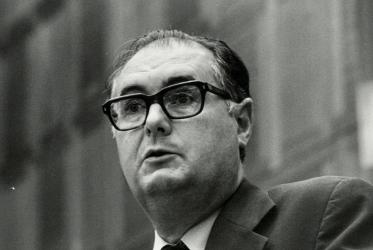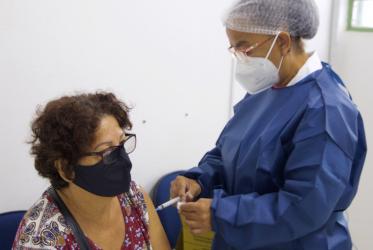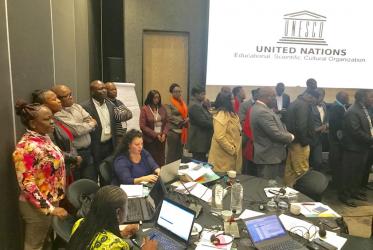Displaying 1 - 20 of 84
WCC mourns the death of Julio de Santa Ana
20 April 2023
WCC mourns passing of Hendrew Lusey-Gekawaku
23 October 2020
Youth leaders: “We will stop at nothing” to end HIV and violence
17 October 2019
Climate emergency: faith-based groups pledge to amplify prophetic voice
25 September 2019
Knowledge of gender roles deepens in Togo
03 June 2019
Faith and HIV treatment go hand in hand
06 March 2019
Turning mercy and compassion into action
04 March 2019
Interfaith Rainforest Initiative expands
12 February 2019
Momentum grows for health-promoting churches
07 December 2018















